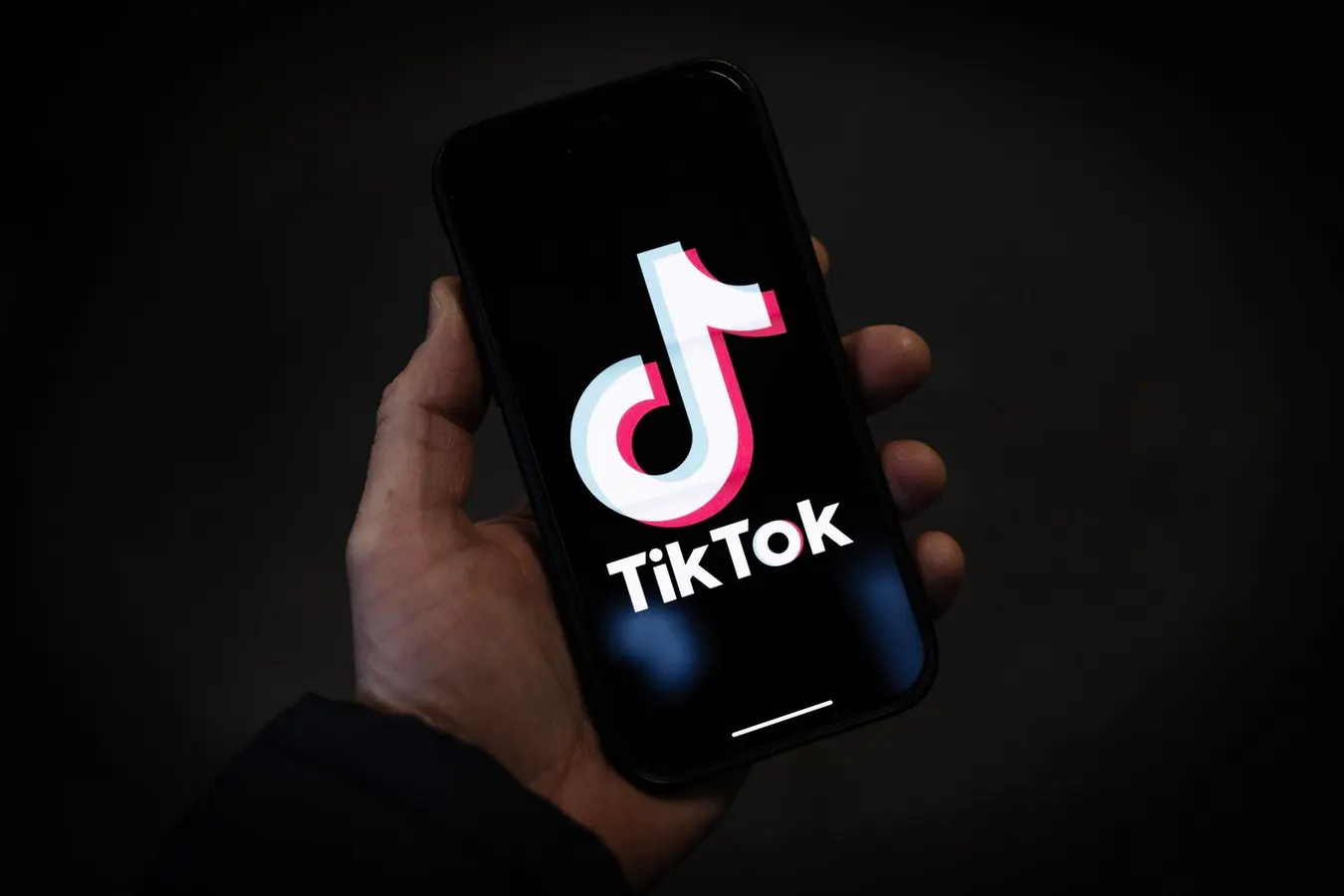
This is Naked Capitalism fundraising week. 424 donors have already invested in our efforts to combat corruption and predatory conduct, particularly in the financial realm. Please join us and participate via our donation page, which shows how to give via check, credit card, debit card, PayPal, Clover, or Wise. Read about why we’re doing this fundraiser, what we’ve accomplished in the last year, and our current goal, supporting our new Coffee Break/Sunday Movie features
You know the world is in a dark place when in the space of just a few days Tony Blair, an unrepentant war criminal and profiteer, is proposed as chairman of a “board of peace” for Gaza while Larry Ellison, the world’s second richest man, takes a controlling stake in TikTok’s US operations. Both are fervent Zionists as well as long-standing business associates, and they are on a mission to transform the world in ways most of us would probably recoil from.
A Regime Run by “Affluent Foreigners” with “Palestinians at the Bottom”
During his second term in office, Tony Blair considered allowing Israel to take over “five main settlement blocs in the West Bank” which would “become part of Israel”, according to newly released British government documents. He is also an honorary patron of a charity, the UK branch of Israel’s Jewish National Fund (JNF), that displays a map on its website including the occupied Golan Heights, West Bank and Gaza Strip as part of Israel.
Blair will now head the Gaza International Transitional Authority (Gita), a regime run by affluent foreigners with Palestinian executives at the bottom, as Liza Rozovsky reports for Ha’aretz:
Former British Prime Minister Tony Blair’s plan for running the Gaza Strip after the war proposes a multilayered, hierarchical structure in which senior international diplomats and businesspeople are on top and the Palestinians running things on the ground are at the bottom.
According to the document, which Haaretz is publishing in full for the first time, the Gaza International Transitional Authority (GITA) will be run by an international board.
Its chairman will be Gaza’s top political executive, but he will work “in close consultation” with the Palestinian Authority. As Haaretz has previously reported, Blair himself is slated to hold this position, according to an Israeli government source. (Tony Blair’s draft Gaza plan obtained by Haaretz)
Among other things, the chairman will be responsible for diplomacy – with other countries, with international organizations and with donors. This includes “strategic security diplomacy with external actors, including Israel, Egypt, and the United States.”
GITA will operate under a mandate from the UN Security Council and be given broad powers, including responsibility for coordinating security in Gaza and passing legislation that will govern residents’ lives.
It remains to be seen whether Blair will accept the governor/viceroy role or prefers a more hands-off position such as an “adviser”. One thing that is clear is that he will not be welcome by the overwhelming majority of Palestinians, for obvious reasons.
Regaining Narrative Control
Ellison’s buyout of TikTok’s US assets is no less controversial given he is the largest individual donor to the Israeli Defence Forces and one of six Jewish billionaires that have “quietly become the backbone of Israel’s wartime spending and tech innovation”, according to the Jerusalem Post. As Wikileaks points out, the takeover is all about regaining narrative control, particularly around Israel’s ongoing genocide in Gaza and multi-front conflicts in the Middle East:
Ellison, who made his fortune developing Oracle – a database system he originally built for the CIA – already controls CBS, Paramount, MTV, Comedy Central, Showtime, Nickelodeon (which makes kids shows) as well as Channel 10 in Australia and Channel 5 in the UK. Ellison is also expected to finalize control over Warner Bros. Discovery (including CNN, HBO and the Discovery channel) before the end of 2025.
Even before the forced sale is finalised, censorship of TikTok content critical of Israel, including of the deal itself, has reached extreme levels as the platform moves to align with its prospective new owners. Fox – a Murdoch asset – is also seeking to join the Ellison consortium, a move that could enable cross-promotion between Fox and TikTok, further tightening the Israeli-aligned information bubble.
Disapproval of what Israel is doing in Gaza has risen to 60% of the US population, nearly double the approval rate of 32%.
The U.S. still has over three years of Trump left. Israeli-aligned Jewish billionaires control OpenAI, Google, Meta/Facebook/Instagram/WhatsApp, Palantir, CBS, HBO, and most of Conde Nast (Reddit, Vogue, The New Yorker, Wired, GQ, Vanity Fair) as well as numerous Hollywood studios, regional papers and radio stations.
Ellison’s Dark Vision for OUR Future
But it is what Ellison and Blair are doing together that is getting a lot less attention, despite the fact it could end up impacting all of our lives. Ellison has donated or pledged a staggering £257million for the Tony Blair Institute for Global Change, which appears to be securing him significant access to, and influence, over the Starmer government.
In late February, we published a post titled “Larry Ellison’s Dark Vision for OUR future”. Ellison, we noted in the first paragraph, “has a vision for the future, and it is one that most of us would never vote for if given the chance (which, of course, we won’t be)”:
It essentially involves harvesting and storing all of a nation’s data, including all of its citizens’ most personal data, in one place, and then letting AI programs scour all over it. That data, he says, should include economic data, electronic healthcare records, including our genomic data, spatial information, agricultural data and info about infrastructure.
“I have to tell [the] AI model as much about my country as I can,” Ellison said in a recent onstage discussion with his old friend Tony Blair at the World Governments Summit. “We need to unify all the national data, put it into a database where it’s easily consumable by the AI model, and then ask whatever question you like. That’s the missing link.”
Ellison believes that the benefits of such a system will include improved healthcare, thanks to treatments tailored to individuals, as well as the ability for governments to increase food production by better predicting crop yields. And at the World Governments Summit he was touting those benefits to senior representatives of many of the world’s governments, with Blair by his side helping to lubricate the sales pitch.
The octogenarian tech titan has an almost religious faith in AI, describing it as “maybe” the most important discovery in the entire history of humankind — more important, seemingly, than fire, the wheel, language, steam, electricity and the atom. He is also aggressively pushing for governments, particularly the US and the UK, to embrace AI-enabled control and surveillance technologies, with a significant onus on biometric identifiers — something both countries have already been doing for some time, with help from Ellison.
Now, Ellison wants to take AI-enabled digital surveillance and control systems to a new level by totally centralising them, despite the obvious security implications. He also envisions a world without passwords and personal identification numbers (PINs) in which access to IT systems and tech platforms will be based purely on our biometric identifiers. As he says in the clip below of his recent chat with Blair, “this is the last year you will ever log onto an Oracle system with a password… biometric logins are the future.”
Ellison also talks about the need for national governments to have their own “sovereign” data centres to power their AI systems, which will no doubt provide Oracle, the world’s largest database management company, lots of new income streams.
In an Oracle financial analysts meeting in September, Ellison told investors that AI will usher in a new era of surveillance that he said, gleefully. will ensure “citizens will be on their best behaviour.” It is almost as if Ellison read Orwell’s 1984, Huxley’s Brave New World, Phillip K Dick’s Minority Report and a host of other dystopian novels and came away with a new business model.
Now, Ellison’s vision is rapidly becoming a reality on both sides of the Atlantic, as the world’s second richest man flexes his financial muscles not only in the development of AI data centres, digital health, online surveillance systems and biometric identifiers but also with big moves in the traditional and social media space.
Mandatory Digital ID for Work
Meanwhile, as we warned last Tuesday (Sept 23), the UK’s Keir Starmer government is going all-in on digital identity. Two days later, Starmer said this:
Starmer’s announcement directly contradicted his government’s previous claims that adoption of digital ID would not be mandatory. Government ministers have spent the past three days tying themselves in knots over the issue, with one even saying that it will be mandatory to have a digital identity but not mandatory to use one.
Serious concerns have been raised about the potential implications for the millions of UK citizens who do not have smart phones. From London Loves Business:
Elizabeth Anderson, CEO of the Digital Poverty Alliance said, “The introduction of digital IDs sets a dangerous precedent, potentially only allowing people the right to work if they can afford and use a smartphone.
That ignores the 19 million people who are suffering from digital poverty and lack a smartphone, connectivity or skills, creating a black hole in the labour market and a significant portion of the population who are immediately excluded even further.”
“The people most impacted are those on low incomes, older people, young people paying for their own phone bill, refugees and domestic violence victims, as they are the most likely to not have access to a smartphone.”
“A serious concern is where this will definitely stop at the right to work? Or in reality, will it stretch to accessing the NHS, applying for benefits or pensions, or applying for training? Many of us take for granted these essential services, but the steps taken to implement a digital ID system could have a worrying impact on millions of people who are already being left behind.”
The Labour government’s announcement of mandatory digital ID for work coincided almost perfectly with the publication by the Tony Blair Institute for Global Change of a report titled “Time for Digital ID: A New Consensus for a State That Works”. The report’s executive summary claims that UK “citizens are rightly expecting the government to deliver common-sense solutions [in the digital space] or make way,” presumably for a government that will:
Digital ID is one such solution – and there is a massive political upside for those who embrace it. Build a system that works and voters will respond.
A modern digital ID does three things. It allows people to prove that they are who they say they are, prove that certain things about them are true, and seamlessly and securely access services on that basis. Far from reflecting the “papers, please” caricature of an ID card, digital ID is the foundation of a new system that brings fairness, control and convenience to people’s everyday interactions with each other and with the state.
There is so much brazen propaganda in these two small paragraphs alone that it is hard to know where to begin. First off, you have to admire the slyness of the authors for slipping in the word “control” between the two reassuring words, “fairness” and “convenience”, as the intended benefits of the digital identity system, presumably hoping readers won’t notice it.
After all, the centrally controlled digital identity systems being rapidly erected around the world are all about control. A full-fledged, government-backed digital identity system could end up touching just about every aspect of our lives, from our health to our private and public communications, the information we are able to access online, our dealings with government, the food we eat, the goods we buy and even our ability to participate in the economy.
It is no coincidence that digital identity systems are being rolled out in lockstep with central bank digital currencies (CBDCs). As independent journalist Whitney Webb notes, digital IDs are not really a separate project from CBDCs:
CBDCs and digital IDs are meant to go together. And without digital IDs, the CBDC digital finance system cannot exist…
They have to know who you are. And so they want to have your wallet tied to a digital ID, and have that digital ID be mapped to your physical ID through the biometric data collection. If you don’t participate in digital ID, you won’t have a legally recognised identity, you won’t have rights, you won’t be able to access services without it….
The system itself is inherently exclusionary, and has been used to track and surveil people, to link people to essentially all their activities, what they say online.
Most perversely of all, the authors of the TBI report have tried to paint the introduction of government-controlled digital identity systems as a response to bottom-up pressure when they are exactly the opposite. As Caitlin Johnstone notes, “you can tell intuitively that digital IDs aren’t being pushed for the benefit of ordinary people just from the fact that zero ordinary people have been asking for them”:
You’ll see people clamoring for their government to do all kinds of things depending on where they’re at on the political spectrum, from giving them better healthcare to stopping immigration to legalizing weed to making prayer mandatory in public schools. But one thing you never see is ordinary members of the public demanding that the government create a digital ID system and force everyone to participate in it. Literally never. It’s a completely top-down initiative with zero grassroots demand.
This is because conventional systems of identification have been working out more or less fine for general members of the public for generations. What digital ID systems provide that those conventional systems do not is a significant increase in the state’s ability to surveil and control the population and their online behavior. This doesn’t benefit ordinary people, but it does benefit our rulers.
It also benefits the companies that provide the technologies and data centres to operate the digital identity systems, and their owners — including, of course, Larry Ellison. As we have noted before, Ellison’s huge donations to the Tony Blair Institute for Global Change (TBI) translate into influence, not only over TBI but also over the Keir Starmer administration, thanks to the preponderance of Blairites and former senior TBI officials in key government positions.
Ellison’s friendship with Blair dates back to the early 2000s when the Blair government began signing public service contracts with Oracle. Those contracts have grown significantly over the past two decades. Since leaving politics in 2007 and becoming a global consultant-for-hire, the friendship has blossomed, with the two even holidaying together off the Sardinian coast.
“Toxic As F**k”
A new exposé by Lighthouse Reports and Democracy for Sale, based on interviews of 28 current and former TBI staff, most on condition of anonymity, and public documents and those obtained under freedom of information laws, reveals the extent of that influence:
TBI has lobbied ministers on technology and had policy proposals taken up by government. Critics say that was part of a major influence operation that could yet culminate in US tech firms taking control of Britain’s most valuable data.
TBI is unlike any other UK think tank. Ellison donations have seen it grow to close to 1,000 staff, working in at least 45 countries. It enjoys US levels of funding and influence, so while UK counterparts like Policy Exchange had income of £4.3 million in the past financial year, and the Institute of Public Policy Research registered £4.3 million in 2023, TBI’s turnover was US$145.3 million…
Blair himself takes no salary from TBI, but in recent years, it has been able to recruit from blue-chip firms like McKinsey and Silicon Valley giants Meta. In 2018, before the Oracle founder’s funding surge, TBI’s best-paid director earned US$400,000. In 2023, the last year when accounts are available, the top earner took home US$1.26 million.
One former staff member said the effect of this cash injection was to make the culture “toxic as fuck”, while others described a form of AI boosterism that silenced nuance and pushed the boundaries of lobbying for Oracle…
[T]he testimony describes an organisation unusually close to the British government, that holds joint retreats with Oracle and is willing to engage in “tech sales” with governments in the rest of the world — sometimes to the potential detriment of local populations — under the guise of consultancy.
“When it comes to tech policy,” said a former senior advisor in the UK, “TBI’s role is to go to developing economies and sell them Larry Ellison’s gear. Oracle and TBI are inseparable”…
There is a reason why men whose fortunes are built on AI investments would target the UK: the NHS and its unique population-level health data. Tech experts talk about Britain’s health records in almost hushed tones. While Europe and the US have some comparable health data sets — such as US veterans’ medical records — none have the depth and breadth of NHS records dating back to 1948. Its potential commercial value, from drugs to genome sequencing, has been estimated at between £5 billion and £10 billion per annum.
The level of influence waged by both TBI and Oracle on the Starmer government is only now coming to light. Documents seen by the Mail on Sunday revealed that Tony Blair had urged then Technology Secretary (and a former advisor to Blair) Peter Kyle to seek a briefing on the work of the Ellison Institute of Technology (EIT), a research centre in Oxford owned by Ellison:
Experts say Oracle is now in pole position to profit from plans to force millions of adults to sign up for a digital ID card.
And an exclusive MoS analysis can reveal that after Sir Tony’s meeting with Mr Kyle, Mr Ellison’s organisations have enjoyed astonishing access to the very top of Government.
Indeed, staff from Oracle and EIT have met with ministers and senior officials no fewer than 29 times in nine months.
Meanwhile science minister Lord Vallance has met EIT representatives seven times – one was to discuss ‘EIT plans for expansion and alignment with Government’s priorities’, official records show.
Technology writer Andrew Orlowski said: ‘The Government’s digital identity system creates lucrative new opportunities for Oracle, a database company…
It has already hoovered up major government IT contracts in recent years and will be in pole position to land future work linked to ID cards.
‘Tony Blair is really just a salesman for the tech companies, and flies around the world looking for naive Governments who want to believe in magical solutions.’
If there is a silver lining to this story, and it is a very faint one, it is the fact that Blair — and by extension, Ellison — appear to have placed most of their chips on a Keir Starmer government that is already the UK’s least popular on record after just 15 months in office, and could collapse at any time.



